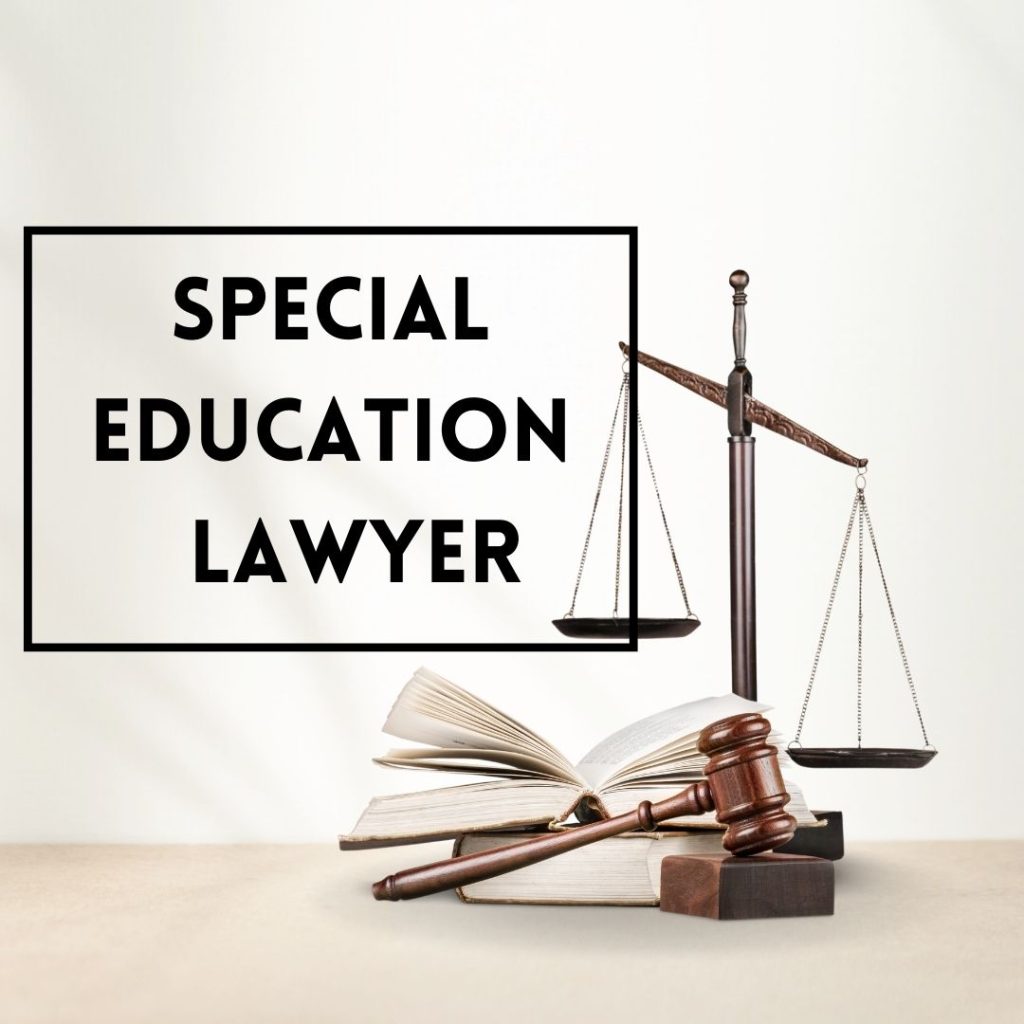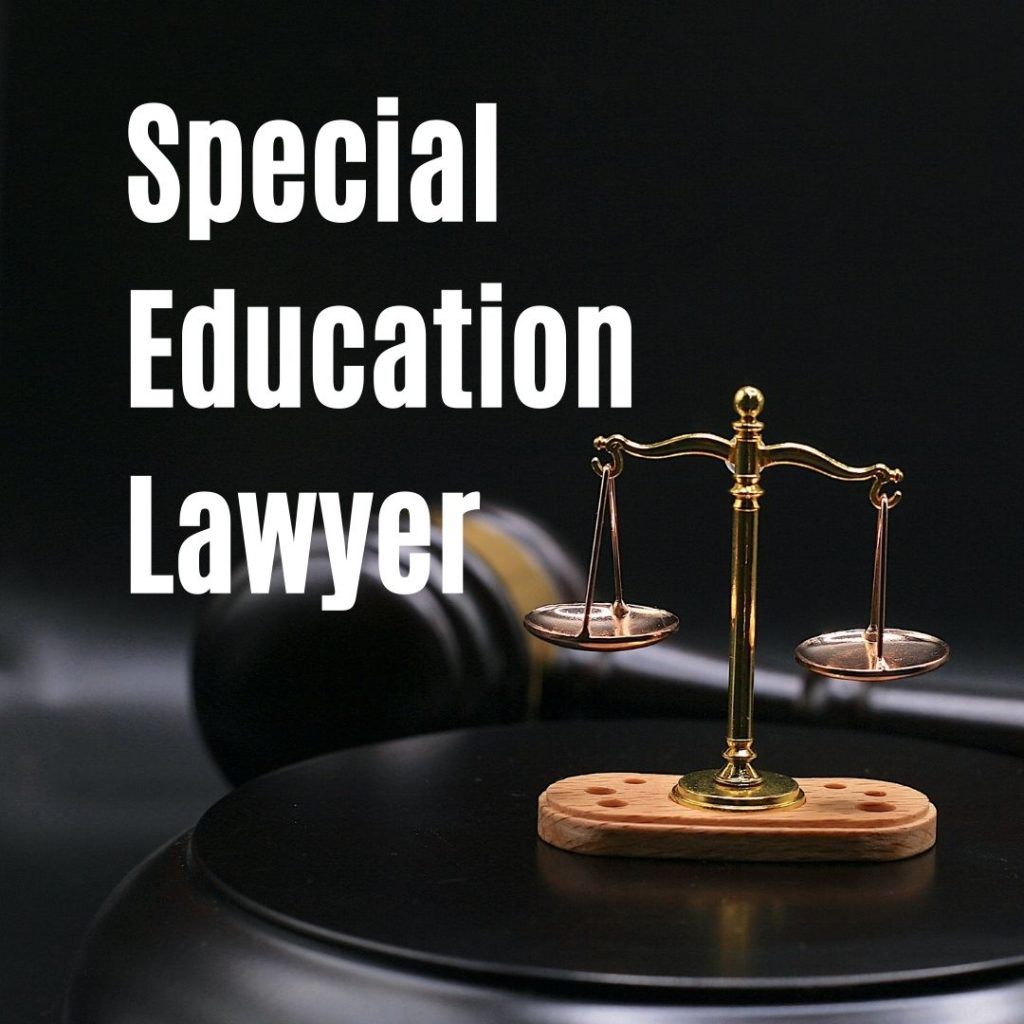Special Education Lawyer: Navigating Rights for Your Child
A Special Education Lawyer advocates for students with disabilities to ensure they receive appropriate educational services. They navigate legal frameworks like the Individuals with Disabilities Education Act (IDEA).
Navigating special education law requires the expertise of a Special Education Lawyer to ensure students with disabilities have access to the tailored educational opportunities they are entitled to. These attorneys are well-versed in federal and state laws pertaining to special education, striving to protect the rights of these students and their families.
As education systems become increasingly complex, these legal professionals serve as vital resources in securing necessary accommodations and modifications within schools. They represent families in negotiations with schools, at Individualized Education Program (IEP) meetings, and, if necessary, in due process hearings and court proceedings.
Special Education Law
Special Education Law stands as a critical framework. It supports students with disabilities. The law ensures these students receive tailored educational services. Understanding this legal landscape is key. It empowers parents, educators, and students alike. Let’s delve into the extensive history. Let’s recognize the legislation that shapes special education.
Historical Context
The journey of special education law has been transformative. Initially, students with disabilities often lacked proper support. Over time, society recognized the need for change. Legal milestones now uphold the rights of these learners. These changes reflect growing inclusivity in our education system.
- The 1970s marked a turning point with seminal laws.
- Education for all handicapped children surfaced as a priority.
- Parents demanded equal opportunities for their children.
Key Legislations
Several laws stand out in special education history. Each one built on the progress of its predecessors. These laws reflect our commitment to accessible education.
| Year | Legislation | Impact |
|---|---|---|
| 1975 | Education for All Handicapped Children Act (EHA) | Birth of Free Appropriate Public Education (FAPE) |
| 1990 | Individuals with Disabilities Education Act (IDEA) | Expanded rights, introduced IEPs |
| 2004 | IDEA Reauthorization | Added accountability, aligned with NCLB |
- Education for All Handicapped Children Act (EHA) guaranteed access to education.
- Individuals with Disabilities Education Act (IDEA) redefined inclusion.
- IDEA Reauthorization emphasized results and alignment with general education.

The Role Of A Special Education Lawyer
The role of a Special Education Lawyer is pivotal for families navigating the complexities of special education law. These lawyers ensure that children with disabilities receive the appropriate education and services they are entitled to by law. Knowledge and experience are their tools as they guide parents through IEP meetings, mediation, and courtroom proceedings if necessary.
Legal Expertise
Special education lawyers possess a deep understanding of laws like the Individuals with Disabilities Education Act (IDEA), Section 504 of the Rehabilitation Act, and the Americans with Disabilities Act (ADA). Their expertise includes:
- Evaluating educational records to determine legal compliance
- Drafting and reviewing Individualized Education Programs (IEPs)
- Interpreting psychological and educational evaluations
- Negotiating with school districts to provide required services
Advocacy And Support
A Special Education Lawyer also acts as an advocate and supporter for the child and their family. They:
- Offer counsel on legal rights and options
- Attend IEP meetings and other school-related conferences
- Communicate with school officials to resolve disputes
- Provide representation in due process hearings and federal court litigation
A Special Education Lawyer is a champion for equality in education. They uphold every child’s right to access the resources they need to succeed academically and personally. With a lawyer’s assistance, families can navigate the complex web of special education law with clarity and confidence.
Identifying When You Need Legal Help
Understanding the right moment to seek legal support can be pivotal for the success of your child’s education. Missteps in special education can have lasting impacts. Let’s discuss clear signs that it’s time to bring a Special Education Lawyer on board.
Recognizing Your Child’s Needs
Are you aware of what your child is entitled to by law?
Students with disabilities have rights under federal laws like IDEA and Section 504. These laws ensure they get proper education and support. Parents should watch for any signs that their child’s needs aren’t being met.
- Delayed Individualized Education Program (IEP)
- Unmet accommodations or modifications
- Inadequate progress reports
- Concerns raised but not addressed
If this list feels familiar, consider legal help.
Red Flags In School Response
How has the school responded to your child’s special education needs?
Schools must follow strict processes for special education services. Sometimes, they fall short. Here are red flags:
| Red Flag | Why It Matters |
|---|---|
| Lack of Communication | Parents must be in the loop at all times. |
| IEP Meetings Without Parents | Parents are key members of IEP teams. |
| Services in IEP Not Provided | Each service in the IEP is a legal requirement. |
| Dismissal of Concerns | Your input should shape your child’s IEP. |
Encounter these issues? A lawyer can help.

Rights Under Idea And Section 504
Understanding the rights of children with special needs is crucial. Two important laws protect these rights: Individuals with Disabilities Education Act (IDEA) and Section 504 of the Rehabilitation Act. Each law ensures that children with disabilities receive the education and services they deserve. Here’s how they help:
Free Appropriate Public Education
Free Appropriate Public Education (FAPE) is a key point in IDEA. All students have the right to an education that fits their special needs at no cost to the family. FAPE includes:
- Special education and related services.
- Individualized instruction to meet the unique needs of the student.
- Access to the same educational opportunities as other children.
Section 504 covers students not eligible under IDEA. It prevents discrimination and ensures they get equal chances to succeed. This includes:
- Reasonable classroom accommodations.
- Modifications like extended time on tests.
- Services such as counseling or physical therapy, if required.
Individualized Education Programs (ieps)
The heart of IDEA is the Individualized Education Program (IEP). This plan is crafted for each child with special needs. It includes:
| IEP Component | Details |
|---|---|
| Current performance | Child’s academic and functional levels. |
| Annual goals | Achievable targets for the child. |
| Special education services | Types of help the child will get. |
| Participation with non-disabled peers | Opportunities for inclusion. |
| Progress tracking | How the child’s progress will be measured. |
An IEP team, including parents and teachers, works together to create this plan. They review it at least once a year to make changes if needed.
Navigating Iep Meetings
Individual Education Plans (IEP) meetings unite parents, educators, and special education lawyers. They exist to ensure that every child receives an education tailored to their unique needs.
Preparation Strategies
Starting with a strong foundation is crucial for a successful IEP meeting. Thorough preparation leads to productive conversations. Here’s how you can prepare:
- Gather all past IEP documents, evaluations, and notes.
- Write down your child’s strengths, needs, and progress.
- Set clear goals for your child’s education and growth.
- Consult with a special education lawyer if needed.
Effective Communication
Exchange of ideas is the heart of any IEP meeting. To communicate effectively:
- Listen actively to what teachers and specialists say.
- Ask questions for clarity.
- Discuss any concerns respectfully and clearly.
- Ensure all voices are heard, including your child’s, if appropriate.
Working with a special education lawyer can help. They make sure the meeting stays focused.
Due Process Hearings
Navigating the world of special education can often lead to disputes between parents and school districts over what is best for a child’s education. Due Process Hearings are formal legal proceedings that aim to resolve such disputes. These hearings give both parties the opportunity to present their case before an impartial hearing officer. The goal is to ensure all children receive appropriate educational services in line with the Individuals with Disabilities Education Act (IDEA).
Understanding The Process
Before stepping into a hearing, it is crucial to understand what happens during the process. A Due Process Hearing is similar to a court trial but less formal. Each side can present evidence, witness testimonies, and legal arguments. The hearing officer then makes a binding decision based on the information presented.
- Request a hearing: A formal written notice starts the process.
- Mediation: Often offered as a step to resolve issues before a hearing.
- Hearing date: The hearing is scheduled, typically within 30 days.
- Resolution session: A meeting to try to settle before the hearing.
- Hearing: Each party presents their case.
- Decision: Issued by the hearing officer within a set timeframe.
Preparing Your Case
Effective preparation is the key to success in Due Process Hearings. Start by gathering all relevant documents, such as evaluations, Individualized Education Programs (IEP), report cards, and correspondence with the school district.
Detail every concern regarding your child’s educational plan. Identify specific areas where you believe the school district has not complied with IDEA or has not met your child’s needs.
Consult an expert: A Special Education Lawyer can review your case and advice on legal strategy. This professional can also help collect evidence, prepare for cross-examination, and present your arguments effectively.
Strategies For Successful Advocacy
Having the right strategies for successful advocacy is key for any special education lawyer. Special education involves unique challenges. It needs a good blend of knowledge, skills, and tactics. Let’s explore how you can ensure success in advocacy.
Working With School Districts
Understanding and collaboration are essential when dealing with school districts. Special education lawyers need to build a positive dialogue. This dialogue can bridge gaps between parents and schools.
- Know the law: Be well-versed in the Individuals with Disabilities Education Act (IDEA) and state regulations.
- Create a plan: Map out clear goals with steps to achieve them.
- Document communication: Maintain records of all interactions.
Meeting with school officials can pave the way for fair negotiations. A lawyer should always come prepared with a student’s records. This includes reports, evaluations, and any relevant documents.
Building A Support Network
Success in special education legal matters often hinges on a robust support network. This network can offer assistance, resources, and validation.
| Support Member | Role |
|---|---|
| Therapists | Provide assessments and expert opinions. |
| Educational Consultants | Give insight into appropriate educational settings. |
| Advocacy Groups | Offer resources and community support. |
Networking events and workshops can also be beneficial. Joining professional groups boosts one’s reputation and knowledge pool.
Choosing The Right Lawyer
Parents know that finding the right special education lawyer is crucial. With the right guidance, children with disabilities secure the support they need. Let’s dive into how to choose a legal champion who stands for your child’s educational rights.
Criteria For Selection
- Experience: Look for lawyers with strong special education case backgrounds.
- Knowledge: They should be up-to-date with the Individuals with Disabilities Education Act (IDEA).
- Success Rate: Check their history of winning cases or securing appropriate services for clients.
- Recommendations: Seek referrals from other parents or disability rights groups.
- Availability: Ensure they have time to dedicate to your case.
Interviewing Potential Candidates
Preparation is key. Make a list of questions you want to ask. Take note of how lawyers interact with you.
| Question | Reason for Asking |
|---|---|
| Can you share your experience with cases like mine? | To judge their familiarity with similar situations. |
| What are your strategies for success? | To discern their approach and if it aligns with your needs. |
| How do you communicate updates? | To ensure there are open lines of communication. |
Do they seem understanding and dedicated? Your gut feeling is also an important indicator. Trust it.

Financial Considerations
Navigating the realm of special education can be complex and costly, especially when legal issues arise. Understanding the financial aspects of hiring a special education lawyer is critical for parents and caregivers. It empowers them to make informed decisions while advocating for a child’s educational needs.
Costs Of Legal Representation
Fees vary widely among special education lawyers. They often depend on the case complexity, the lawyer’s experience, and geographic location. Common billing methods include:
- Hourly rates: This is the most traditional method. Clients pay for each hour the lawyer works on their case.
- Flat fees: For more predictable services, some lawyers may charge a single, set fee.
- Contingency fees: Rare in special education cases, these fees mean you only pay if you win the case.
| Type of Fee | Payment Structure |
|---|---|
| Hourly Rate | Pay per hour worked |
| Flat Fee | One-time set fee |
| Contingency Fee | Pay only if successful |
Before hiring a lawyer, ask about all possible fees. Request a written fee agreement to avoid surprises.
Exploring Funding Options
Finding resources to cover legal costs is crucial. Explore these funding options:
- Insurance policies may include coverage for legal services.
- Grants and charities often assist families with a child’s special education needs.
- Payment plans arranged with the attorney can ease financial strain.
- Pro bono services provide legal help at no cost for qualifying families.
Contact local advocacy groups for guidance on funding. They can direct you to available resources.
Long-term Advocacy And Empowerment
A special education lawyer does more than just fight battles in the present.
They are pivotal in setting the stage for ongoing success and self-reliance.
This involves a two-pronged approach: honing a child’s ability to advocate for themselves and planning for adulthood.
Building Self-advocacy Skills
Empowering students with special needs starts with self-advocacy skills.
These are crucial for personal growth and independence.
A lawyer helps families ensure that educational plans include self-advocacy goals.
Teaching these skills is essential for confidence and agency.
- Understanding their rights within educational settings
- Communicating needs and goals effectively
- Seeking appropriate resources and support when needed
These elements are fundamental for children to navigate the challenges they face.
Planning For The Future
As children grow, concerns about the future take center stage.
A special education lawyer guides families in long-term planning.
| Area | Strategies |
|---|---|
| Transition Services | Structured plans for moving from school to adult life |
| Financial Planning | Trusts, guardianships, and benefits navigation |
| Education and Employment | Post-secondary education options, job coaching |
By crafting a comprehensive plan, families can feel secure about their child’s future.
Frequently Asked Questions Of Special Education Lawyer
What Does A Special Education Lawyer Do?
Special education lawyers advocate for students’ rights within the educational system. They ensure schools adhere to laws like the Individuals with Disabilities Education Act (IDEA). They handle disputes, represent families in hearings, and help secure appropriate educational accommodations.
When Should I Hire A Special Education Attorney?
Consider hiring a special education attorney when facing challenges with your child’s educational accommodations or Individualized Education Program (IEP). If a school is non-compliant with special education laws or a dispute arises, an attorney can provide crucial guidance and representation.
Can A Special Education Lawyer Help With Iep?
Yes, special education lawyers are skilled in reviewing and negotiating Individualized Education Programs (IEP). They can help ensure that your child’s IEP meets their unique needs and that the school is providing the necessary services and supports as required by law.
What Is The Cost Of A Special Education Lawyer?
The cost of a special education lawyer can vary widely based on location, experience, and the complexity of the case. Some may offer free initial consultations or work on a sliding scale. It’s essential to discuss fees upfront to understand the potential financial commitment.
Conclusion
Selecting the right special education lawyer can be pivotal for safeguarding your child’s educational future. Ensure you choose someone knowledgeable, compassionate, and dedicated to your case. Remember, a specialized advocate in this legal landscape can effectively navigate complex regulations and secure the best outcomes.
Protect your child’s rights with an expert who understands and fights for their educational needs.







